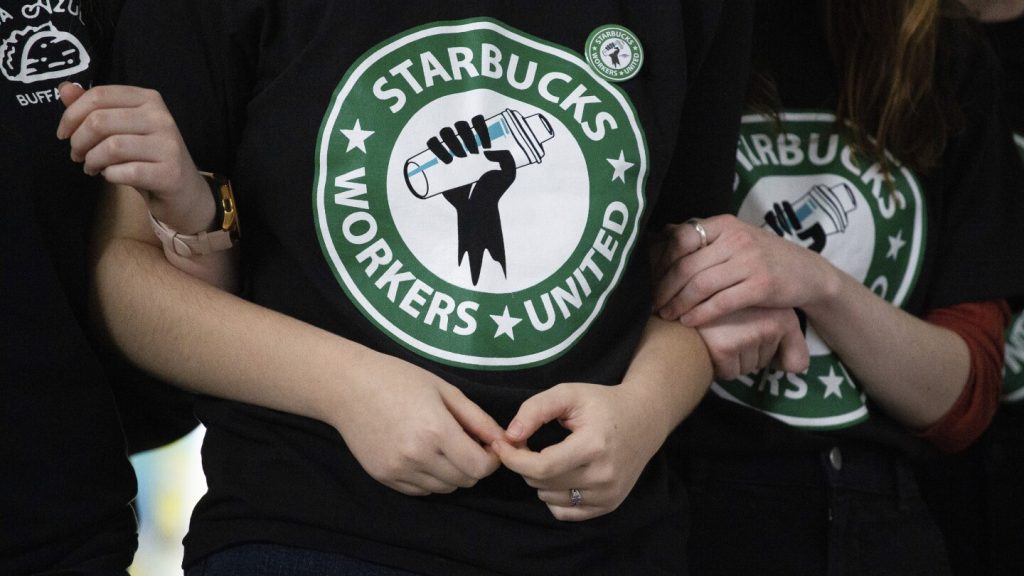Starbucks is currently in a legal battle with the National Labor Relations Board (NLRB) over the firing of seven workers who were trying to unionize their Tennessee store. The NLRB obtained a court order forcing Starbucks to rehire these workers, leading Starbucks to take the case to the Supreme Court. This case could potentially have far-reaching implications in cases where the NLRB alleges corporate interference in unionization efforts. Despite the initial animosity between Starbucks and Workers United, the union organizing the workers, the two sides have agreed to restart talks with the goal of reaching contract agreements this year. The hearing at the Supreme Court comes at a time when workers at various Starbucks locations in the US have been voting to unionize since late 2021, but have not secured any labor agreements with the company.
The legal battle between Starbucks and the NLRB began in February 2022 when Starbucks fired seven employees for allegedly violating store policy by reopening the store after closing time and inviting non-employees inside. The NLRB determined that these firings constituted illegal interference with the workers’ right to organize. A federal district court intervened and ordered Starbucks to rehire the workers while the case was ongoing. Starbucks appealed to the Supreme Court, arguing that the NLRB’s request for a temporary injunction can be a burden for companies as the administrative process can take years. The Supreme Court is being asked to clarify the standards the NLRB must meet when requesting temporary injunctions against companies.
Five of the seven fired workers are still employed at the Memphis store, with the other two remaining involved in the unionizing effort. The Memphis store voted to unionize in June 2022. Starbucks argues that different federal appeals courts have varying standards for NLRB injunction cases, and they are asking the Supreme Court to establish a consistent four-factor test that all courts must follow in these cases. Starbucks claims that this intervention is urgently needed to ensure that national employers like them are not subjected to varying standards based on location. The NLRB, on the other hand, argues that it already considers its likelihood of success before taking cases to court, making the number of factors largely irrelevant.
The NLRB received 19,869 charges of unfair labor practices in its 2023 fiscal year and only authorized the filing of 14 cases seeking temporary injunctions. The agency argues that the two-part inquiry undertaken by the Sixth Circuit and other courts provides meaningful scrutiny without simply rubber-stamping agency requests. Starbucks’ case before the Supreme Court has the potential to impact how the NLRB pursues cases of alleged unfair labor practices and could shape the legal landscape for companies and workers engaged in unionization efforts. The outcome of this case could set a precedent for how courts handle similar cases in the future and may affect the balance of power between corporations and labor organizations.


